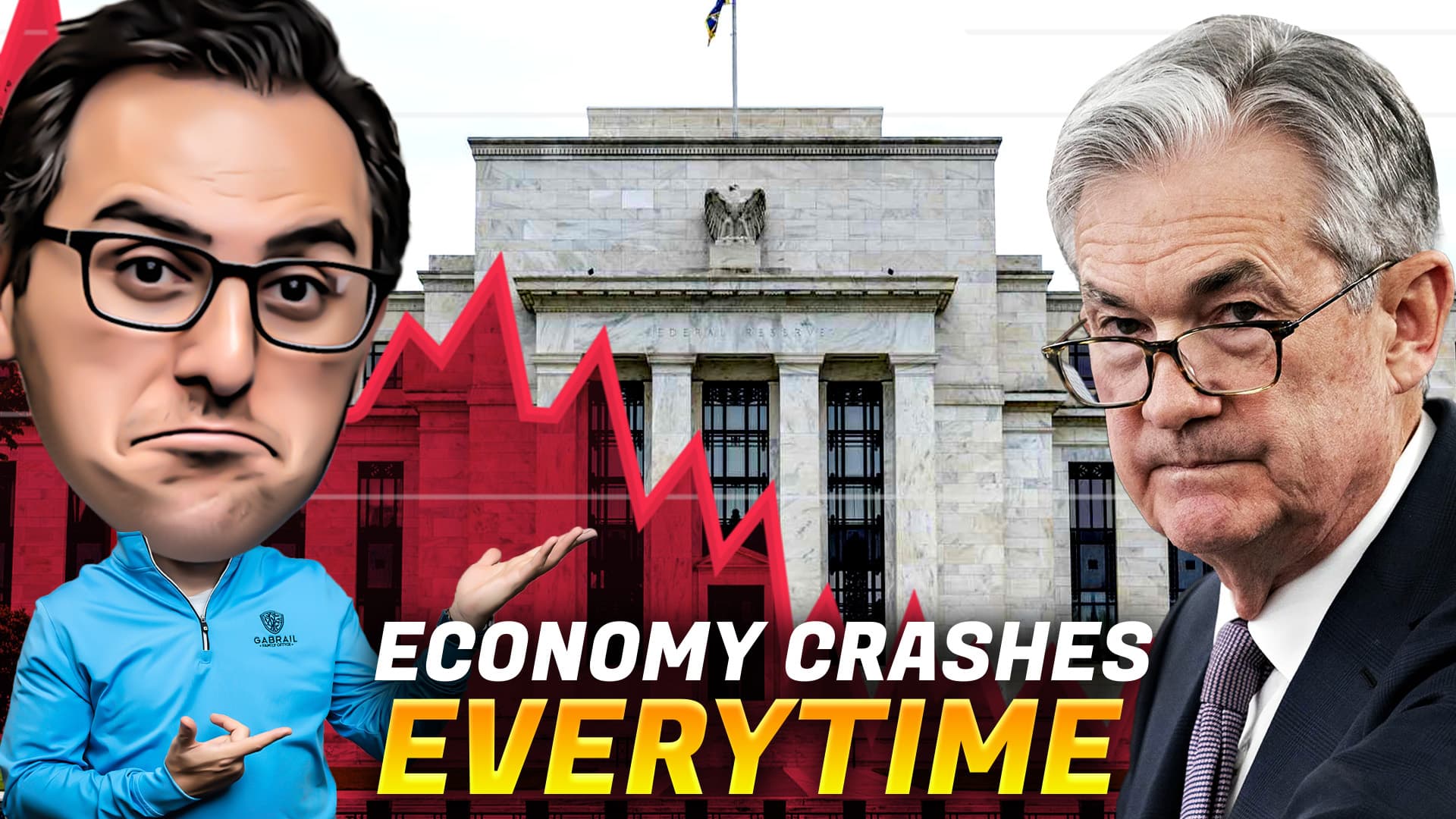Understanding Interest Rate Cuts and Recessions: What It Means for Your Finances
Will the economy fall into a recession?

Interest Rate Cuts and Recessions: What It Means for Your Finances
Hey everyone! Today, we're diving into an important topic: the relationship between interest rate cuts, recessions, and what it all means for you and your finances. Mo and I recently explored some fascinating data from the Federal Reserve that dates back to 1955. So, let’s break it down.
The Fed and Interest Rates
Recently, there’s been a lot of buzz about the Federal Reserve potentially signaling a September interest rate cut (today). Historically, we’ve noticed a pattern: in all but two instances when the Fed has cut rates, a recession followed. Now, this raises a big question: does cutting interest rates cause recessions?
Not exactly! Recessions are typically recognized after they’ve happened. It can take months for the data to confirm that we’ve entered one. So, often, you might not even realize you’re in a recession until it’s well underway. On average, recessions last about 11 to 12 months, although some have been as brief as two months—like during COVID when the U.S. government pumped money into the economy to recover from a sharp decline.
What the Data Shows
As we analyzed the data, we noticed a recurring theme. While it might seem like cutting interest rates causes recessions, it’s more about the Fed responding to economic slowdowns by attempting to boost the economy. The chart from the St. Louis Fed clearly shows the interplay between interest rates and recessions, with the blue line showing where the fed interest rates and the gray vertical lines indicating recession periods.
Why Would the Fed Cut Rates?
In my view, the Fed cuts rates primarily to stimulate economic activity during times of slowing growth. When they notice signs of a slowdown—like decreased consumer spending or rising unemployment— they aim to lower borrowing costs to encourage businesses and consumers to spend and invest. It’s a way to inject liquidity into the economy, making loans cheaper and boosting confidence. However, it's important to remember that while the intention is to kickstart growth, these actions often come after the signs of trouble are already apparent, which can lead to the unintended consequence of a recession. The Fed is essentially trying to manage a complex economic system, and sometimes, their interventions can have delayed effects that aren’t immediately clear.
Investment Strategies in a Potential Recession
So, what’s the plan moving forward? The Fed and the media are calling for a soft landing, and we may get it. But recessions are inevitable, and we will experience several more in our lifetime. As we face the possibility of another recession, I want to stress the importance of a solid investment strategy. Mo and I believe in investing in strong companies, particularly if prices dip. Remember, even in a recession, there are opportunities if you can manage your emotions.
Conclusion
With the right mindset and strategy, you can weather the storm. Focus on long-term values rather than short-term market fluctuations, you can make more informed decisions that serve your financial goals.
⚠️ By watching videos posted on Everything Money’s YouTube channel and/or using EverythingMoney.com, you acknowledge that you have read, understand, and agree to the following:
Everything Money is Not an Investment Advisor: Everything Money (including Paul, Mo, and Any other person including, but not limited to, other staff members, guests, personalities, etc.) is not an investment adviser, and it is not registered as such with the U.S. Securities & Exchange Commission or any other state or federal authority under the Investment Advisers Act of 1940 or any other law. The investments and strategies discussed in Everything Money’s YouTube videos and on Everythingmoney.com are not and should not be considered investment advice and may not be suitable for you. They do not take into account your particular investment objectives, financial situation, needs, or personal circumstances and are not intended to be specific to you. Before acting on any investment or strategy discussed, you should always do your own research and make your own independent decision about whether it is suitable for your particular circumstances. You should also consider seeking advice from your own legal, financial, tax, accounting, or investment advisers. Everything Money does not provide such advice.
READ THE FULL DISCLAIMER HERE: https://everythingmoney.com/disclaimer





